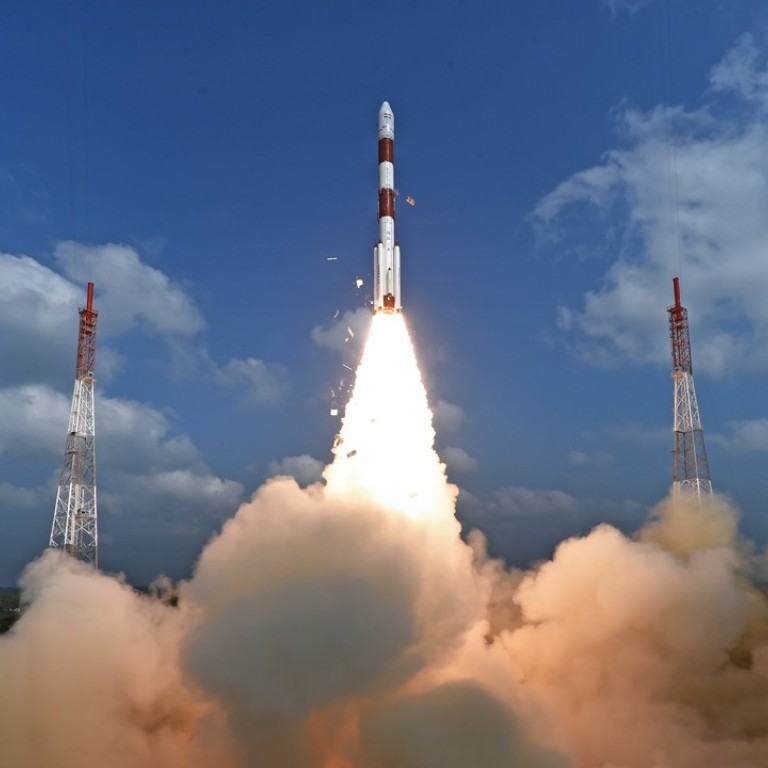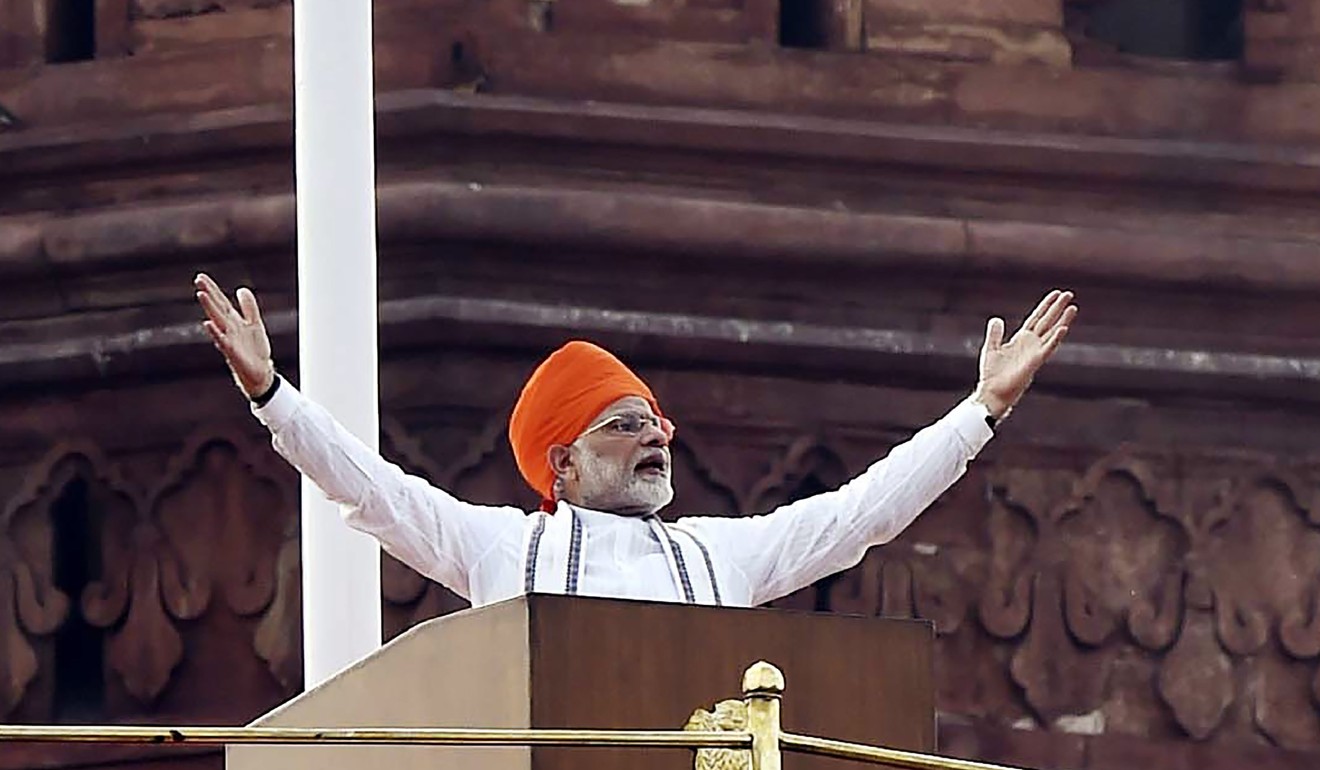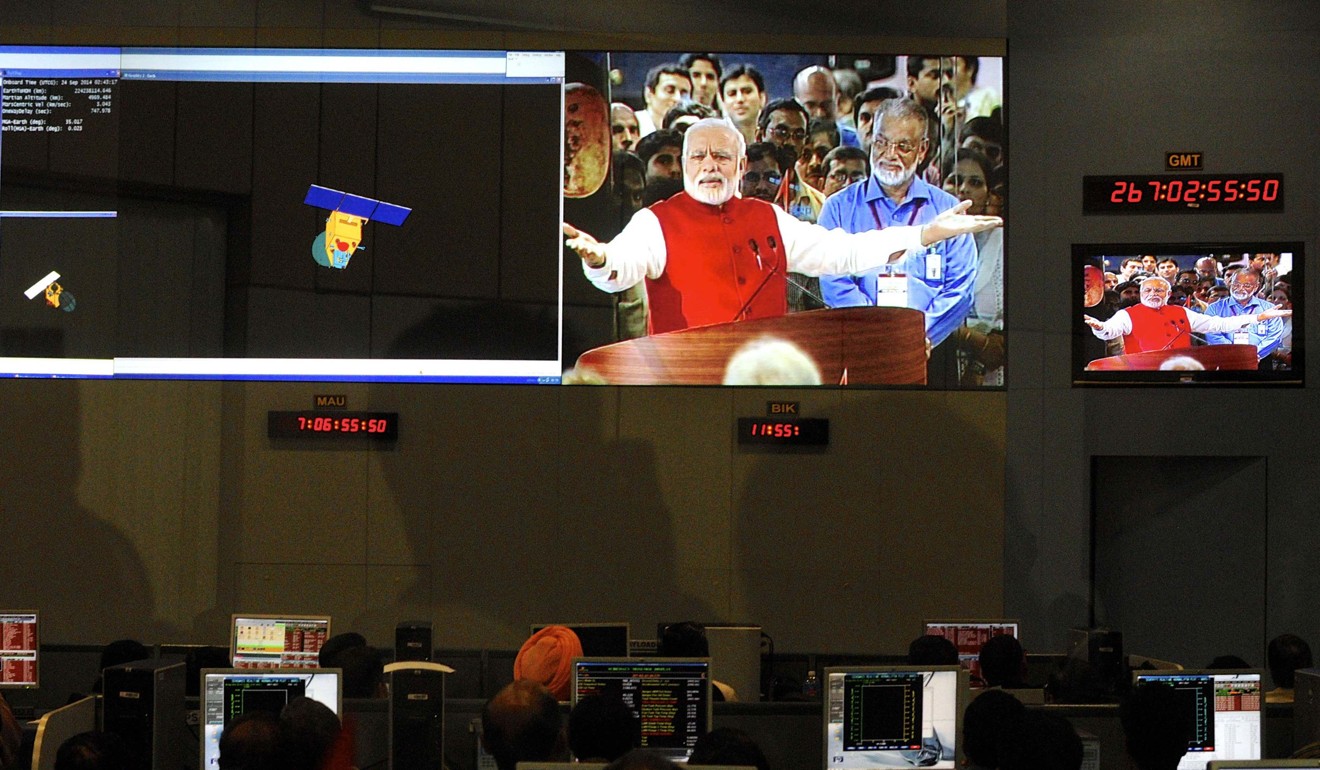
India will send manned flight into space by 2022, PM Modi declares in Independence Day speech
Modi said India will become the fourth country after Russia, the United States and China to achieve the feat
India will launch its first manned space mission by 2022 and roll out a health insurance scheme from September, Prime Minister Narendra Modi said on Wednesday in his last Independence Day speech ahead of next year’s general election.
Modi, a powerful speaker who will seek re-election in the world’s biggest democracy early next year, used the speech to broadcast his government’s achievements, amid concerns about lack of jobs and rising violence against the Muslim minority.
Wearing a flowing saffron turban, the Hindu nationalist leader also announced the plan to take the “Indian tricolour to space” in a manned mission that would make India the fourth nation to launch one, after the United States, Russia and China.
“India is proud of our scientists, who are excelling in their research and are at the forefront of innovation,” Modi said from the ramparts of the Mughal-era Red Fort in Delhi to a crowd numbering in the tens of thousands.

“In the year 2022 or, if possible, before, India will unfurl the tricolour in space.”
Months after Modi’s election in 2014, India became the first Asian nation to reach Mars when its first mission to the red planet entered orbit, at a cost of US$74 million, or less than the budget of the Hollywood space blockbuster Gravity.
The space capsule that will transport India’s astronauts was tested a few days earlier.
Rakesh Sharma was the first Indian to travel in space, aboard a Soviet rocket in 1984. As part of its own space programme, active since the 1960s, India has launched scores of satellites for itself and other countries and successfully put one in orbit around Mars in 2014.
It hopes to showcase its technological ability to explore the solar system while also using research from space and elsewhere to solve problems at home.

The US$1 billion-a-year space programme has already helped develop satellite, communication and remote-sensing technologies and has been used to gauge underground water levels and predict weather in the country prone to cycles of drought and flood.
It is aiming to send an unmanned mission to the moon in January 2019, the Indian Space Research Organisation announced last week.
The Chandrayaan-2 orbiter will aim to put a craft with a rover onto the moon’s surface to collect data.
Modi also said his government would launch from September 25 a previously announced medical insurance scheme, dubbed “Modicare”, to give about 500 million poor people annual health cover of 500,000 rupees (US$7,200) to treat serious illness.
“It is high time we ensure that the poor of India get access to good quality and affordable health care,” Modi said.
It’s an ambitious plan that could have vast appeal among voters, but one that also faces major challenges.
Experts say that even if the government can provide insurance to so many people, India lacks the health care infrastructure to provide even the most basic services for its population.
India also does not have the doctors and hospitals to serve so many hundreds of millions.
There is one doctor for every 1,315 people - most of whom work in private hospitals and live in cities, which means millions of Indians turn to quacks or traditional medicine when they fall ill.
India spends just 1.4 per cent of its gross domestic product on health care compared with China’s 3.1 per cent and the United States’ 8.3 per cent, according to the World Bank.
Reuters, Associated Press, The Washington Post
